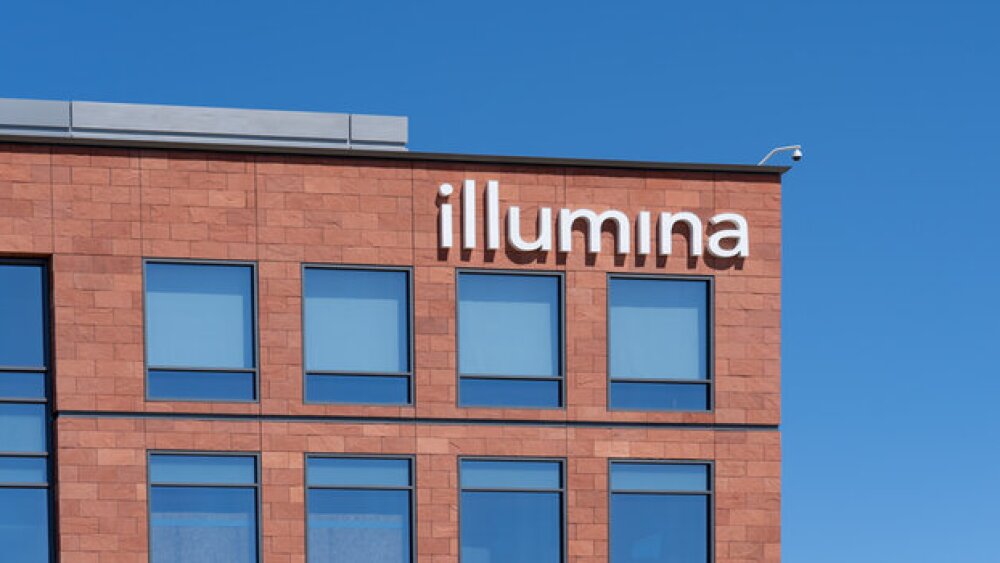For closing its $8 billion acquisition of Grail without regulatory approval, the European Union has slapped Illumina with a record $476 million fine—the maximum sanction allowed under the EU’s rules.
Pictured: Illumina headquarters in California/iStock, JHVEPhoto
The European Commission has fined Illumina approximately $476 million for consummating its proposed merger with cancer detection biotech Grail before regulatory approval, the EC announced Wednesday.
“Illumina and Grail knowingly and intentionally breached the standstill obligation during the Commission’s in-depth investigation,” the EC wrote in Wednesday’s press release, calling the violation an “unprecedented and very serious infringement” of the European Union’s merger regulations undermining the control systems that allow the Commission to “carry out its role before structural changes modify the competitive landscape.”
Under these merger regulations, the Commission can fine violators for up to 10% of their aggregated global revenue. Illumina’s $476 million penalty represents the maximum sanction allowed under the EU’s rules, underscoring the gravity of the company’s infringement. The EC also slapped Grail with a “symbolic fine” of around $1,100.
Illumina’s fine is the largest merger regulation penalty the Commission has ever meted out, a record that was previously held by telecommunications company Altice, which received a €124.5 million fine in 2018 (approximately $137 million with today’s conversion rate).
Grail is also the first target company to be sanctioned for “gun-jumping” under the EU’s merger regulations, according to the Commission’s statement.
“If companies merge before our clearance, they breach our rules,” Margrethe Vestager, the Commission’s executive vice president in charge of competition policy, said in a statement. “Illumina and Grail knowingly and deliberately did so by implementing their tie-up as we were still investigating.”
In a statement, Illumina called the fines “unlawful, inappropriate, and disproportionate,” according to reporting by Reuters. “We closed the transaction in 2021 because there was no impediment to closing in the U.S. and the deal timeframe would have expired before the EC could reach a decision on the merits.”
The company added that the deal’s timeline was decided based on the Commission’s statements that it would not assert its merger regulations until it was able to issue new guidelines. However, “the EC nonetheless asserted jurisdiction over the merger before issuing the promised guidelines.”
Illumina moved to buy Grail in September 2020 offering $8 billion in cash and stock for the cancer detection company. The transaction was swiftly met with strong regulatory pushback due to potential anti-trust violations. In the U.S., the Federal Trade Commission filed a complaint to block the acquisition in March 2021.
The EU launched its own investigation into the proposed acquisition in July 2021. Illumina and Grail closed the deal while the investigation was still ongoing, which forced the Commission to adopt temporary measures in October 2021, ensuring that the two companies remained separate entities pending the results of the investigation.
Ultimately, the EC prohibited the acquisition in September 2022 and in December of the last year told Illumina that it had to “unwind the acquisition” of Grail to allow the prohibition to take full effect.
Tristan Manalac is an independent science writer based in metro Manila, Philippines. He can be reached at tristan@tristanmanalac.com or tristan.manalac@biospace.com.






